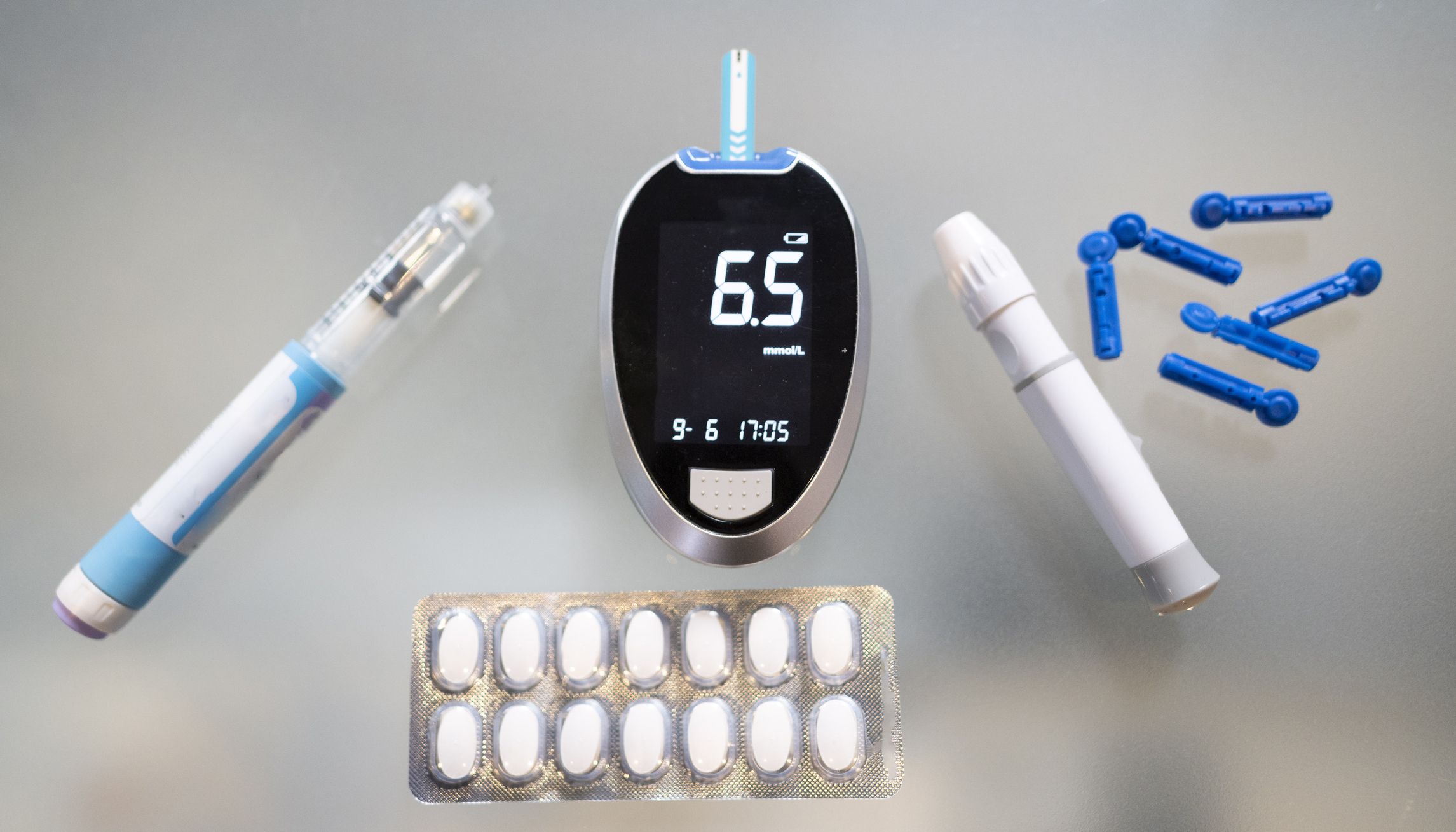
UP TO 40% OFF SITEWIDE






Side Effects of Metformin


Table of Contents
- Metformin side effects, is Metformin bad for you?
- What is metformin?
- Confusions surrounding metformin
- When to avoid Metformin?
- What are the side effects of Metformin?
- Check B12 levels
- Lactic acidosis
- How to reduce the side effects of Metformin?
- Start slow
- Take it with meals and take extended-release form
- What are the real important Good things about Metformin?
- Bottom line
Metformin side effects, is Metformin bad for you?
Is metformin bad for you? I get that question a lot in my diabetes clinic. There’s a lot being talked about when it comes to metformin side effects. Some people say it is bad for you. Some others think metformin is the best medicine for diabetes.
Endocrinologists and diabetes specialists still prescribe metformin as the first medication for people with type 2 diabetes. If it is so bad for you how come it is still the most common diabetic medication? You may have heard a lot of bad things about metformin.
So, who is right? Is metformin really the right medication for you? Should you believe your diabetes doctor or the things you heard or read somewhere? Who is right and who is wrong? Is metformin good or bad? Let’s briefly talk about what metformin is and I will debunk all the myths together with you.
What is metformin?
Metformin is a “first-line” medication for type 2 diabetes mellitus. It is not only used for diabetes but also it has been used for prediabetes, gestational diabetes, and polycystic ovarian syndrome. Did you know metformin works by reducing glucose production in the liver? It also helps increase glucose absorption in the body.
As a result, overall insulin secretion in the body becomes less which is beneficial in order to reduce insulin resistance. There has been a lot of confusion surrounding Metformin. In my current telemedicine practice at sugarmds.com where I am the founding endocrinologist, patients sometimes tell me that they fear Metformin because of serious side effects.
When I ask them, what are the serious side effects that they are concerned about, the reply is generally the same. Metformin causes kidney failure or simply Metformin is bad for you, etc. When I ask the question where they got that information from, they will say from the Internet.
When I asked the source, the answer is generally silence. The problem is most people want to believe that everything on the Internet is true. I always advise them to get information from reliable and legitimate medical resources. Some reliable internet sources are National Institutes of Health or Medline plus.
Confusions surrounding metformin
Since there is a lot of confusion about Metformin, I will clarify some of the most common misconceptions swirling around today. We will talk about the benefits, risks and side effects of Metformin that are proven scientifically. As an endocrinologist, diabetes is the number one disease that I encounter and treat.
Metformin is typically the most common medication we use. Diabetes specialists typically have tremendous experience and background with the use of Metformin. Let’s talk about the myths with Metformin and see if we can debunk them. Right after these myths, we will talk about the real side effects of metformin.
#1 Metformin can cause damage to your kidneys and liver.
That is not true. 17 observational studies compared regimens with and without Metformin. It showed that metformin reduced death rate. It also reduced death among patients with heart failure, renal failure, or chronic liver disease. Based on that, The Food and Drug Administration updated their advice for Metformin to use it until stage IV kidney disease.
If there is active or progressive liver failure Metformin can be avoided. The reason to avoid Metformin in severe kidney failure or progressive liver disease is simple. Because metformin may not be metabolized and excreted from the body properly. This lead to accumulation. Accumulation of metformin can change the body's pH balance.
#2 Metformin can cause dementia.
That is not true. In multiple studies showed that Metformin should be used as first-line therapy for diabetes in patients at risk of developing dementia or Alzheimer's disease. There is no scientific evidence to support the belief that Metformin would cause dementia.
#3 Metformin is harmful during pregnancy.
That is not correct. Multiple studies published in reputable journals indicate that Metformin crosses the placenta. But, there was no increased risk of birth defects or unfavorable outcomes with Metformin. So metformin can be used in pregnant patients with diabetes. On the flip side, poorly controlled diabetes can cause significant harm to the baby including birth defects. Make sure to see an endocrinologist or diabetes specialist if you are pregnant and have high blood sugars.
#4 You cannot use metformin if you have heart disease.
That is partially incorrect. Multiple studies to date during the last 20 to 30 years indicate that Metformin is helpful to reduce heart attacks. This is true especially if patient started early in the course of diabetes. Clinical outcomes also improve when patients used it in stable congestive heart failure. The only time Metformin should be avoided is with acute heart failure and when patients are in the hospital.
#5 Metformin can cause elevated cholesterol levels.
This is false. Studies indicate that after starting Metformin, the bad cholesterol (LDL) goes down. Triglycerides which are another bad cholesterol also go down. HDL which is the good cholesterol goes up after starting Metformin. It has also been shown that metformin can assist in helping prescribed cholesterol medications. This helps further reduce the risk of heart attacks and strokes.
#6 Metformin can increase the risk of cancer.
The opposite is completely true. Multiple scientific studies indicate that the use of Metformin reduced the risk of all cancers by 40%. This means that if you have diabetes and take Metformin, your chances of having cancer can be reduced by 40%.
#7 Metformin can cause damage to the pancreas.
That is not true. Metformin does not cause any pancreatic damage, however, it can reduce the risk of pancreatic cancer.
When to avoid Metformin?
- Patients with severely impaired renal function should avoid Metformin. If your kidney function (glomerular filtration rate, GFR) is below 30 which is stage IV kidney disease, stop metformin. Your diabetes doctor will also tell you that Metformin should be avoided. This is because we know that Metformin can accumulate in the presence of severe kidney failure.
- Concurrent, active or progressive liver disease can be a problem as well. The same reasoning applies to progressive liver disease. Uncontrolled or active liver disease can cause the potential for Metformin accumulation. On the other hand, elevated liver enzymes due to fatty liver is not a contraindication. Chronic liver disease that is stable and not active is also not a contraindication.
- Active alcohol abuse is another no go. This is because acute liver failure can happen at any time with alcohol abuse. Your diabetes doctor may tell you no for metformin when you actively abusing alcohol. This excludes social or occasional drinking.
- Unstable or acute heart failure patients at risk of oxygen delivery to organs. As discussed above, chronic heart failure that is stable is not a contraindication.
- History of lactic acidosis (low pH in the blood)) during metformin treatment.
What are the side effects of Metformin?
Metallic taste in the mouth, mild appetite reduction, nausea, abdominal discomfort, and diarrhea are common side effects of Metformin. On the bright side, most of these gastrointestinal side effects are temporary, lasting anywhere from 1 to 3 weeks. Although, some patients may have persistent side effects. If these symptoms persist, you should report them to your endocrinologist, diabetes specialist or primary care doctor.
Check B12 levels
Metformin can reduce B12 vitamin levels. This problem is also dose-dependent. Occasional B12 testing can be helpful as a severe deficiency can cause neuropathy (nerve dysfunction). If you are on metformin please make sure that your doctor checks A1C at least every three to six months.
Have them check serum creatinine at least once a year. Ask for vitamin B12 annually. Particularly patients are at risk for vitamin B12 deficiency due to decreased intake (vegetarians) or people who had bariatric surgery.
Lactic acidosis
Lactic acidosis is an extremely uncommon side effect. If it is avoided with acute kidney failure, acute liver failure or acute heart failure. Metformin use in stable patients is very safe. Other uncommon side effects of Metformin include chest pain, flushing, rash, headache, stuffy nose, cold-like symptoms or excessive sweating. Please report these symptoms to your endocrinologist, diabetes specialist or primary care doctor. Do not wait should you suspect a severe allergic or adverse reaction.
How to reduce the side effects of Metformin?
Start slow
Starting metformin with a very low dose such as 500 mg daily for a week is a good idea. Then, increasing the dose slowly every week such as 1 tablet twice a day the following week until 1000 milligrams twice a day is achieved (which is the target dose for many patients). That slow titration will help the body acclimate to the medication.
Take it with meals and take extended-release form
Taking the metformin with meals also can make a big difference to reduce any potential side effects. In my endocrinology practice, I always try to use the extended-release formulation. Extended-release tablets that are 500 mg are generic and still inexpensive. The side effect profile of extended-release metformin is generally much better than that of regular Metformin.
On your prescription, you will see “ER” abbreviation after Metformin indicating that it is the extended-release formulation. If you do not see that, you can ask your doctor to change your medication to the extended-release formulation. If you miss a dose, it’s okay as long as it’s not happening consistently and only occurring on occasion. Do not double the dose or take metformin on an empty stomach.
What are the real important Good things about Metformin?
- Metformin is a well-established diabetes medication.
- Doctors have tons of experience with the use of this drug.
- Hundreds of studies have been conducted and were published about Metformin.
- Major guidelines from the American Diabetes Association, American Association of Clinical Endocrinologists and Endocrine Society recommend Metformin as first-line therapy.
- Metformin is very inexpensive.
- It is also a very effective medication.
- Multiple studies suggest that Metformin can reduce the risk of cancer. It also reduces the risk of cardiovascular disease.
- Metformin can lead to slight weight loss.
- Recent and growing evidence shows that Metformin can delay aging and increase lifespan.
Bottom line
After all of this, your diabetes doctor should still discuss your situation with you as you are an individual patient. Don’t have time to go to the doctor Our goal is to avoid medications. But if medications are needed, our diabetes specialists will always find the most effective and least expensive medication.
If we think metformin is not going to be good for you, do not worry. There are many medications that we can choose from. Most importantly the medication that fits your values, your priorities, and personal medical history. sugarmds.com Ahmet Ergin, MD, CDE, ECNU Endocrinologist and Founder of SugarMDs
Written By Dr. Ahmet Ergin
466 total articles
Meet Dr. Ahmet Ergin, a highly skilled and dedicated endocrinologist with a passion for diabetes care. Dr. Ergin earned his medical degree with honors from Marmara University in Istanbul. He completed internal medicine residency and endocrinology fellowship at Cleveland Clinic. Dr. Ergin is board-certified in Internal Medicine, Endocrinology, Diabetes, and Metabolism due to his vast medical expertise. He's a certified diabetes educator, author of “The Ultimate Diabetes Book,” and founder of “the SugarMD YouTube channel.” Dr. Ergin offers exceptional diabetes care to his patients in Port Saint Lucie, FL, helping them manage effectively. For a closer look into his insights and experiences, connect with Dr. Ahmet Ergin on LinkedIn, Instagram, and YouTube.”
Disclaimer: These statements have not been evaluated by the Food and Drug Administration. Information on this website isn't intended to treat, cure or prevent any disease. Discuss with your doctor and do not self-treat.
Products















